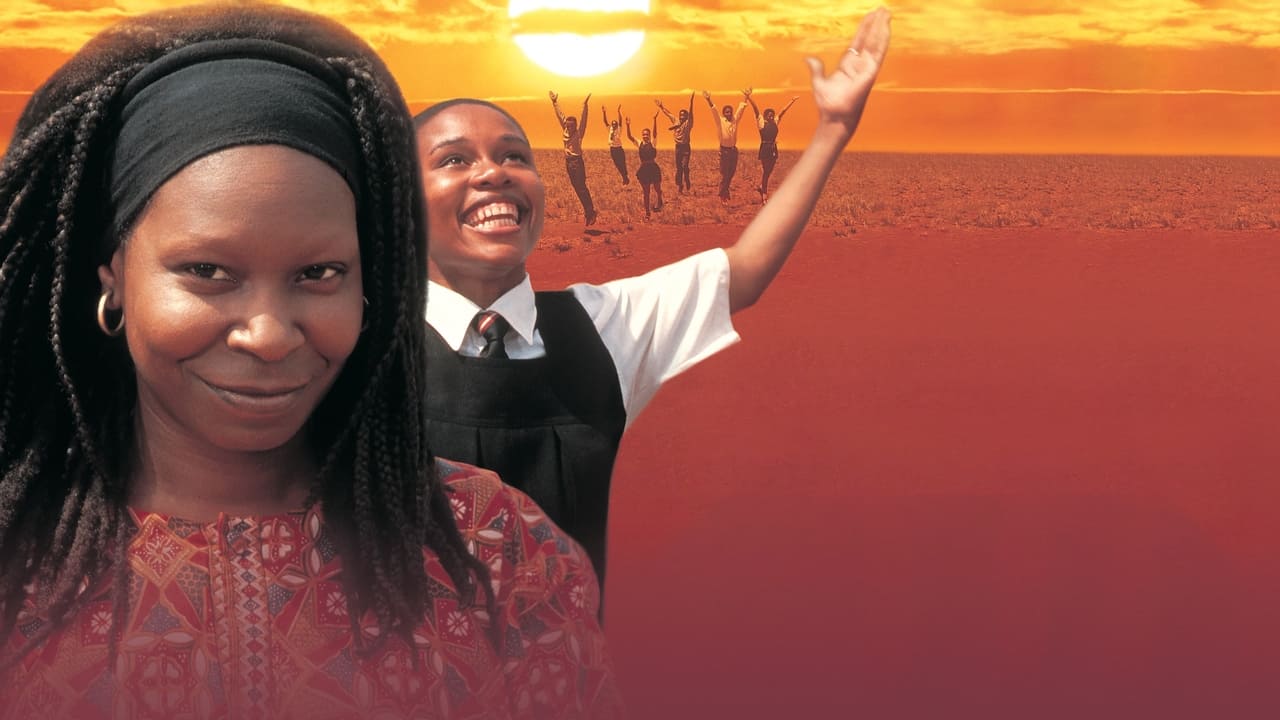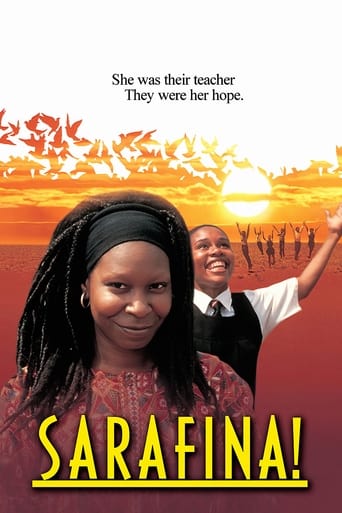

I've always love this movie from when I was a kid. I saw this movie when video cassette was still the main thing to watch a movies. Just recently, I bought Sarafina DVD on Amazon but some of the music in the video aren't in the DVD version.There is a song, # 9 on the music track that isn't in the DVD version, when Sarafina's mother sang, it was more a whole clip of her singing and that isn't in there either.Can someone explain to me as to why that is the case? Or tell me where I can purchase the whole movie DVD. Track #9 was one of my favorite song which is why I noticed it wasn't in the movie when I re-watched it...
... View MoreSarafina! the film is based on Mbongeni Ngema's play of the same name and it draws inspiration from the student riots that took place in Soweto, Johannesburg in 1976. The film/play was never intended to be a historical documentary explaining Apartheid for an international audience but rather a story about young black South Africans living under Apartheid.The film is an excellent adaptation and the musical numbers are well integrated but also evoke the stage through their inclusion. Some may feel that it is inappropriate in a film about such serious issues, but songs and music formed an important element to anti-apartheid protests and they should be seen within this context. The film 'Mapantsula' made five years earlier, demonstrates this same tendency as prisoners sing as they are led into the cells.The film is beautifully shot - the red earth features very strongly - subtly reminding us of mother Africa. It's incredibly well written - I don't think there has been such a well-written film to come out of the country since. Ngema captures the struggle for freedom - the big picture - but does not lose sight of the fact that these were also just teenagers filled with the same angst as teenagers everywhere. Ultimately the film portrays a realistic view of oppression and freedom fighting. It was not easy to live under apartheid neither was it easy to fight against it and there are no heroes in the killing of people, no matter how good the cause.A fantastic film that needs to be better understood.
... View MoreSarafina was a fun movie, and some of the songs were really great. Sarafina was very entertaining. I don't normally like music things like this, but the singing was not lame like it looked like on the box. The movie was useful for learning about history because it was an interesting perspective of the Soweto rioting of 1976. It showed you things from the perspective of the students in the rioting and showed you that they were real characters. Because you got to see them as real characters this makes you like them more as an audience, and makes you more sympathetic to them as totally the victims of the white government, who you can not sympathise with. The singing of the students is correct because we know from accounts that the students in the riot were singing and dancing before it became violent. The clothing of the students in Sarafina is very similar to the clothing shown in photos from Soweto. They made the movie actually in Soweto, which is why it looks very accurate in many parts. All these things make the film more accurate for someone using it to learn about aparthied. As viewers we must be critical of the way the history of Apartheid was presented. As I said before, you become sympathetic to the students - this makes it potentially less reliable and objective. Also, it changes some of the details from other accounts. In Sarafina it turns to chaos when the policeman comes into their classroom and shoots the students. The police and army were very aggressive at Soweto, but this is probably an exaggerated event. The police and army did shoot students, but there is not evidence of them going into schools and executing people like this. The fighting was more in the streets and had looting and crime. This is done in the movie probably to make you feel more sorry for the school students. The movie would have been more useful if it had some different information about aparthied. The teacher was arrested for being against the government, and the mum goes to work in a white persons house. But there is not any information about the government and why they were doing it or any details about the racist policies and laws. -By George S, Chris and Finlay
... View MoreI only saw a few minutes of Sarafina!, but I must comment. I think a musical can never be a great teaching tool for anything but a drama class. I have been to South Africa, and granted, it has changed since the days of apartheid, what I saw in this movie is nothing like reality. Even today, the classrooms are not that nice, and the black people I met were nothing like the ones in the movie. I was privileged to see a few concerts of African music, and to spend a large amount of time in classrooms, both in white schools and black schools (yes, they are still segregated, although by location, class and money, rather than law). The general attitude of the people I saw in the movie was inaccurate, as were many details. I couldn't even figure out exactly what story they were trying to tell until I looked it up on TV Guide because it was so generically "African". I am sure that as entertainment and emotional manipulation, the movie is quite effective, but if you are interested in history, please find a more accurate source.
... View More